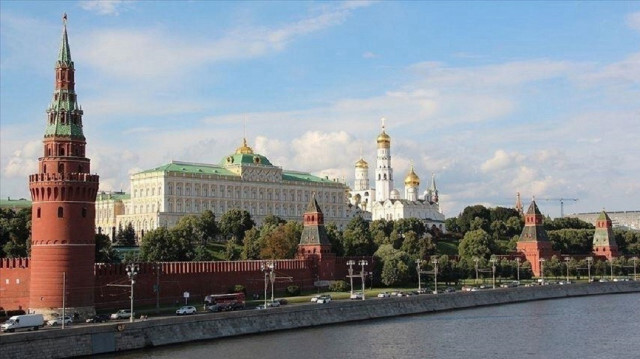

File Photo
Spokesman says territorial defense units equipped with arms in accordance with legislation
Providing weapons to units of territorial defense in Russia's Belgorod region, which borders Ukraine, is legal and is being done due to the current situation, Kremlin spokesman Dmitry Peskov said on Wednesday.
"Everything is carried out in strict accordance with the legislation, and, of course, it is carried out in connection with the situation that exists on earth in this border region. These are measures that are necessary against the background of attacks, assaults that are carried out from the territory of Ukraine," Peskov told a news conference in Moscow.
The spokesman stressed that "all (arms) control mechanisms are being very carefully implemented" in order to mitigate the risks of illegal arms proliferation.
In a separate statement, Belgorod Governor Vyacheslav Gladkov described the situation in the region as "complicated," and announced the decision to provide volunteer units with weapons such as assault rifles, anti-drone guns and Russian off-road UAZ vehicles.
Specialists from the regular army also carried out a master class for the volunteer units on how to operate drones.
Territorial defense forces in the Belgorod region, which has been hit by cross-border attacks in recent months, have about 3,000 personnel and seven battalions.
- Black Sea grain deal, BRICS expansion
Turning to the restoration of the Black Sea Grain Initiative, Peskov said Moscow will be ready to resume its participation as soon as its part is implemented.
"Not only to the negotiations, but also to the deal itself. Immediately ready to do it," he said.
The agreement was signed in Istanbul in July 2022 by Russia, Ukraine, Türkiye, and the UN to resume Ukrainian food exports, which halted after Moscow’s “special military operation” in February 2022.
Russia refused to extend the agreement beyond July 17, saying parts related to its demands were not implemented, i.e. removal of obstacles to its fertilizer exports, such as the inclusion of the state-owned Russian Agricultural Bank in the SWIFT international payment system.
Asked if BRICS countries -- Brazil, Russia, India, China, and South Africa -- were discussing an alternative format that could unite all countries willing to join the bloc, Peskov said talks on the group's extension are on the agenda.
#Black Sea grain deal
#BRICS
#Dmitry Peskov
#Russia
#Ukraine
